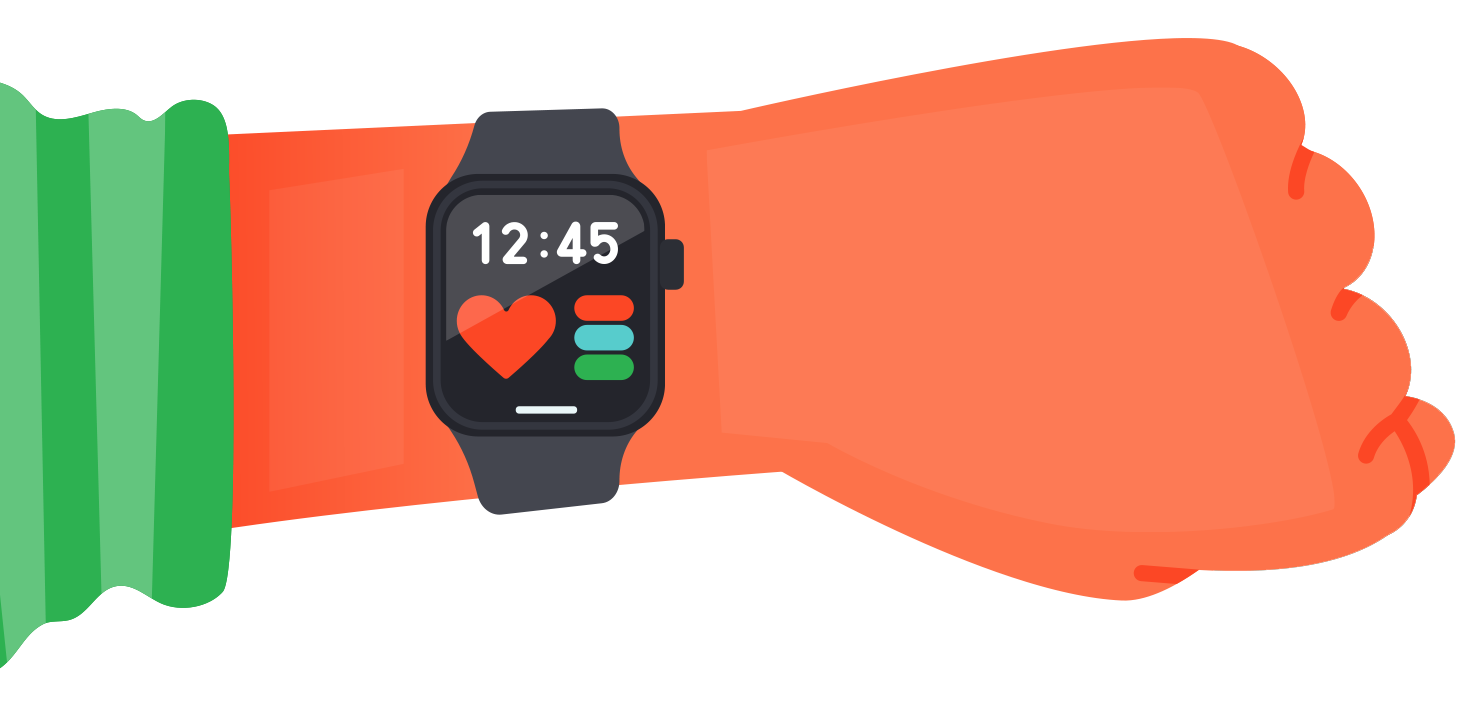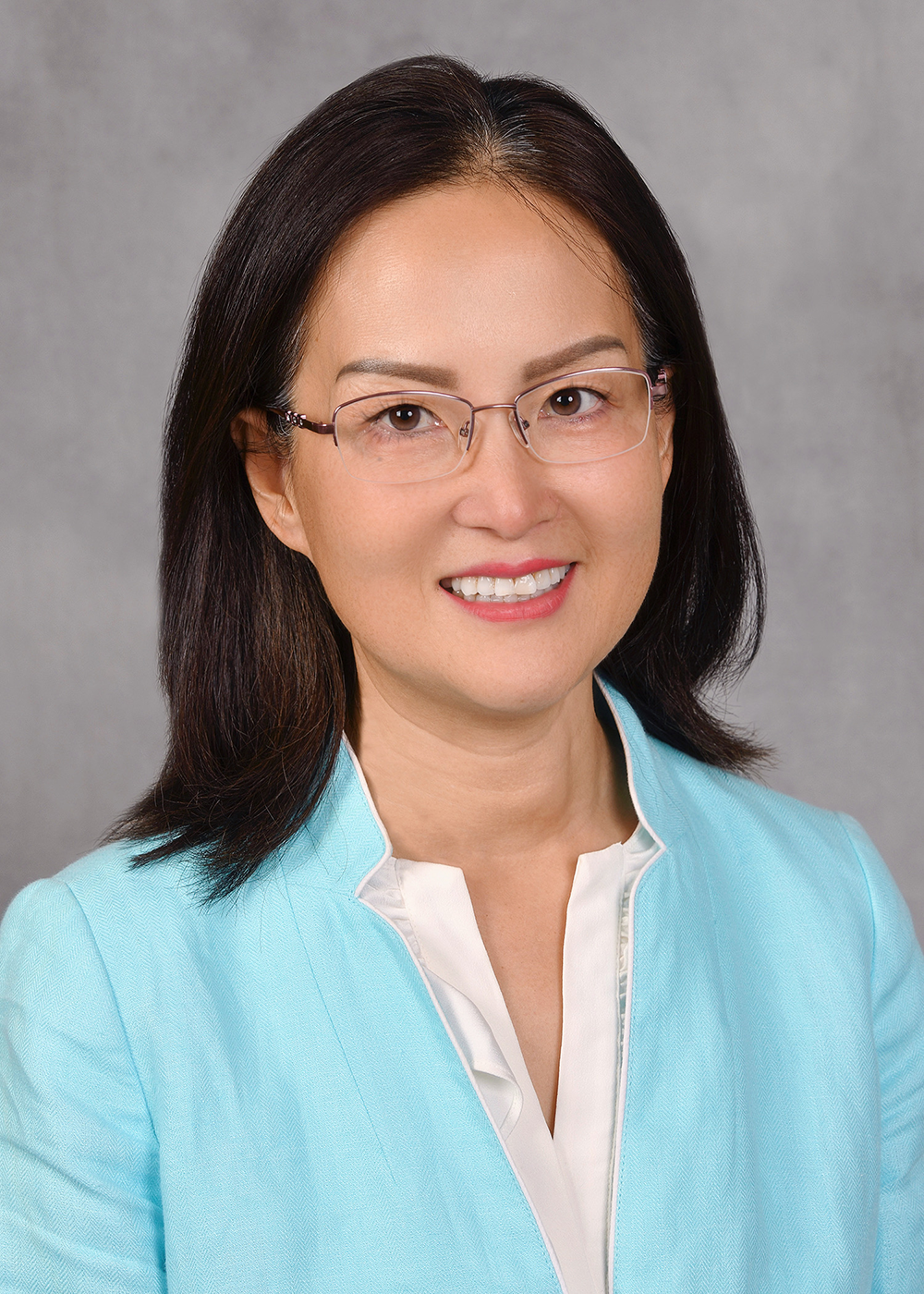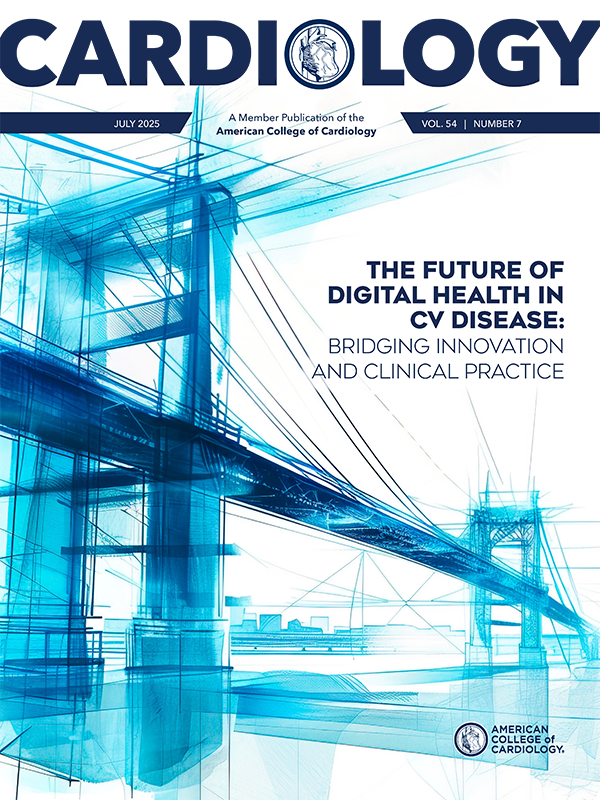Pulse of ACC | New Apple Watch Tool; New Member Benefit; New ACHD SAP
New Tool Provides Guidance on Using Apple Watch to Manage CV Health
The ACC has issued a new tool designed to provide guidance for clinicians and patients using health data collected while wearing an Apple Watch to effectively track and manage cardiovascular health.

Through the tool, developed with funding and support from Apple, clinicians can establish best practices for incorporating Apple Watch data relevant to a patient's care plan, create an implementation plan for collecting and responding to data, and develop processes for working with patients to ensure they are using the watch correctly and seeking care where appropriate.
"With the rise in people using the Apple Watch to be more proactive in their health, guidance and best practices for clinicians and patients is essential to ensure that data are collected accurately and shared effectively," says ACC Chief Innovation Officer Ami B. Bhatt, MD, FACC. "The ACC embraces technologies that encourage patients and clinicians to work together. This tool will guide clinicians on using Apple Watch's heart health regulated features in clinical practice and help clinicians advise their patients on how to incorporate Apple Watch features into longitudinal heart health management."
Several Apple Watch heart-health features are regulated and authorized by the U.S. Food and Drug Administration for adults 22 and older, including:
- The electrocardiogram (ECG) feature, which can record a heartbeat and rhythm using the electrical heart sensor
- The Irregular Rhythm Notification (IRN) feature, which analyzes pulse rate data to identify irregular heart rhythms suggestive of atrial fibrillation (AFib)
- The AFib History feature (for users already diagnosed with AFib), which estimates AFib burden by analyzing pulse rate data and offering weekly summaries.
In addition, several wellness features help monitor a heart healthy lifestyle, including activity tracking, mindfulness experiences, sleep tracking and cardiorespiratory fitness (VO2 Max).
According to the tool, "Apple Watch is best used for general health and wellness, preclinical scenarios or in certain clinical situations in which an arrhythmia has already been identified and is being appropriately managed (e.g., assessment of [AFib] burden). In clinical situations in which real-time notification of data to clinicians and patients is necessary, a continuous [ECG] monitor is strongly advised."
ACC Names Next US Vice Chair For ACC Asia

Cynthia C. Taub, MBA, MBBS, FACC, has been selected to serve as the next U.S. Vice Chair for ACC Asia, starting in 2026. Following her two-year role as vice chair, Taub will serve as the U.S. chair for ACC Asia in 2028 and 2029.
Taub, a globally recognized expert in cardiac imaging, is the Edward C. Reifenstein chair and professor of medicine at SUNY Upstate Medical University. She is a prolific clinical investigator with over 130 original manuscripts exploring new cardiac imaging technologies, valvular heart disease, heart disease in women and cardiac conduction abnormalities in cardiomyopathy. A dedicated and skillful educator, she has mentored more than 200 trainees and won numerous teaching awards, including the Richard Popp Mentoring and Teaching Award by the American Society of Echocardiography.
"My goal in this role is to help with knowledge dissemination and to serve as a champion for global collaboration, with an overarching objective of improving cardiovascular care in the Asia-Pacific region," says Taub.
ACC Asia will take place April 17-18, 2026, in Gyeongju, South Korea, together with the Korean Society of Cardiology Spring Conference. Read highlights from the 2025 conference in Singapore.
Last Chance: Research Award Deadlines Approaching
The July 14 deadline to apply for Hani Najm Global Scholar awards and for seven awards under the William A. Zoghbi Global Research Initiative is fast approaching. Scan the following QR codes for more information and to apply:
- The William A. Zoghbi Global Research Initiative offers seven awards in the amount of $25K each to early- to mid-career cardiovascular investigators residing outside the U.S. Two awards are dedicated to heart failure research, two to cardiometabolic health and the remaining three are open to visionary research in any cardiology-focused area.
- The Hani Najm Global Scholar Award offers early career cardiologists residing in low-to-middle-income countries with the chance to learn from cardiologists at a U.S. institution during a three- to four-week observership – and continue the learning at ACC.26 in New Orleans, LA, all expenses paid.
Learn more about opportunities to sustain and support these awards, along with other ACC Mission-based programs and initiatives focused on global health, leadership training and health equity at ACC.org/Support.
Introducing A New Member Benefit: ClinicalKey AI
ACC membership benefits now include the power of AI! Through a new partnership with Elsevier, ACC members can receive deep discounts on access to ClinicalKey AI, a conversational search tool designed to aid clinical decision-making.
Powered by peer-reviewed content from trusted sources, clinicians can ask complex clinical questions and get quick, summarized answers backed by references and citations. ACC members save 30% with code CKai1YRSUB4ACC. Subscriptions start at less than $2/day for ACC members. Try it for free for 14 days!
Visit ACC.org/Membership for a complete listing of additional partner benefits available to ACC members, including support for contract negotiations, medical professional liability insurance, AED discounts and more.
ACC Launches New Self-Assessment Program For ACHD Specialists
The ACC's new ACHD SAP – the newest addition to the College's suite of trusted self-assessment programs – is designed to support clinicians specializing in Adult Congenital Heart Disease (ACHD). This comprehensive resource is tailored for continuous learning, board exam preparation and sharpening real-world clinical skills.
Packed with 74 expert-led video presentations, 74 in-depth study guides and 135 challenging case-based questions, the ACHD SAP offers an all-in-one toolkit for health care professionals navigating the complexities of ACHD.
Clinicians using the platform can earn 30 CME credits and Maintenance of Certification (MOC) points and the product is closely aligned with the American Board of Internal Medicine (ABIM) blueprint, helping users gain exam-ready confidence with detailed explanations and referenced answers.
"By merging professional development with clinical excellence, the ACHD SAP is more than a study tool – it's a dynamic, case-based learning experience designed to reflect the real-world scenarios faced by ACHD clinicians every day," says ACC Vice President for Education Joyce Donnellan.
ACC, Smith Center to Collaborate to Advance Renal Denervation Knowledge
In an effort to expand the collection of real-world data in patients undergoing renal denervation (RDN) across hospitals in the U.S., the ACC and The Richard A. and Susan F. Smith Center for Outcomes Research at Beth Israel Deaconess Medical Center (BIDMC) are collaborating on an RDN module that leverages the ACC's CathPCI Registry and the Smith Center's RDN Registry.
Specifically, the collaboration aims to ensure the most vulnerable patients receive optimal, guideline-directed care to reduce uncontrolled high blood pressure. "High blood pressure can have devastating health effects and for many people, lifestyle modification and medication aren't enough. Renal denervation can be an important therapy for some patients, but because it's a newer technology, we are lacking comprehensive data on who is receiving it, who would most benefit and who is seeing positive results," says Steve Bradley, MD, MPH, FACC, immediate past chair of the ACC NCDR Oversight Committee. "This collaboration would enable tracking and analyzing of how this technology is being used in the real world to help patients and provide insights on how to help more people with high blood pressure."
The Smith Center's RDN Registry is designed to enable research and analysis of real-world data to characterize baseline patient characteristics, disease progression and treatment-based outcomes for patients undergoing renal denervation. The knowledge gained will:
- Contribute valuable data on the safety, efficacy and durability of this novel interventional strategy for the management of uncontrolled hypertension.
- Provide data-driven insights on renal denervation to enable a deeper understanding of new disease areas of interest, inform study design and enhance the execution of clinical trials.
- Meet regulatory and stakeholder needs for assessing and monitoring long-term safety and efficacy of renal denervation.
- Expand research opportunities that contribute to a better understanding of RDN treatment in real-world patients.
"RDN is a new procedure in the U.S., and it is critical to collect early procedural experiences, identify gaps in care, and monitor long-term safety and efficacy," says Eric A. Secemsky, MD, MSc, FACC, director of vascular intervention at BIDMC and an associate professor of medicine at Harvard Medical School. "Through synergizing our center's expertise in hypertension care and research with the ACC's extensive experience with clinical registries, we are confident that we will establish a robust database with far-reaching implications for the treatment of patients with uncontrolled hypertension."
Hospitals interested in participating in the new collaboration should reach out to khannaga@bidmc.harvard.edu. For more information on leveraging the RDN Registry for research, please contact ranson@acc.org.
Clinical Topics: Congenital Heart Disease and Pediatric Cardiology, Congenital Heart Disease
Keywords: Cardiology Magazine, ACC Publications, Heart Defects, Congenital, Education, Denervation, Artificial Intelligence, Asia, Leadership, Research, Wearable Electronic Devices, Awards and Prizes, Electrocardiography, Heart Rate
